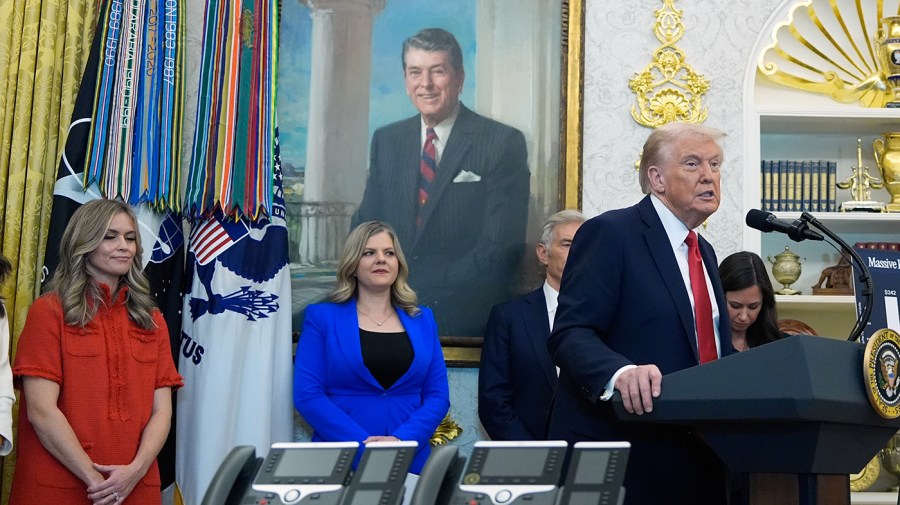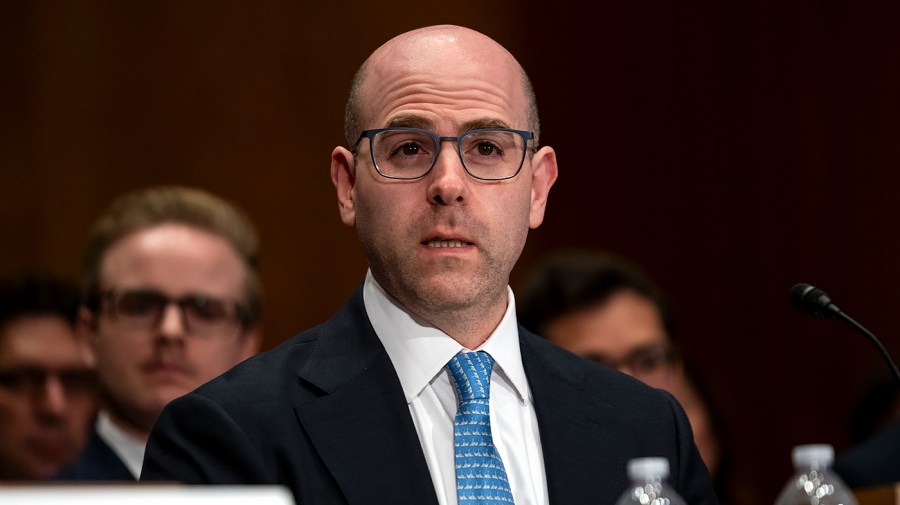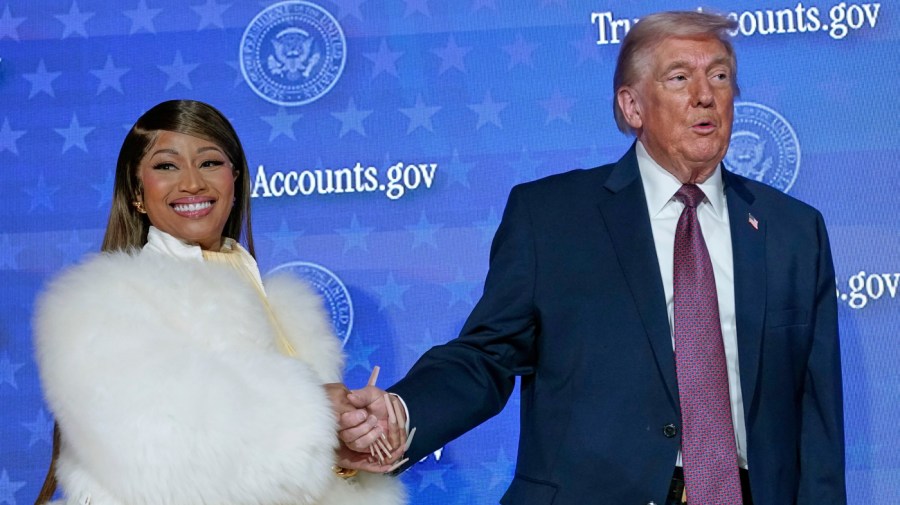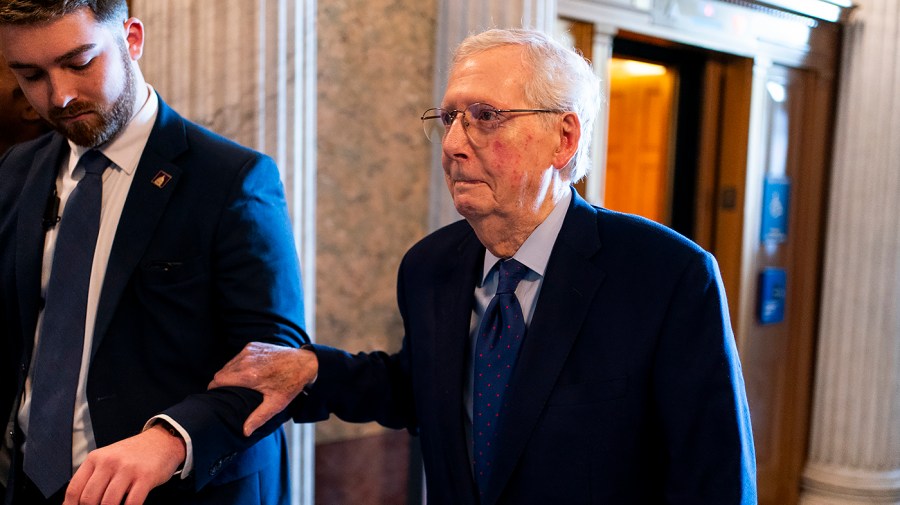
President Trump’s dual action on expanding access to in vitro fertilization (IVF) is drawing mixed reactions from lawmakers, advocates and medical groups, with some calling it a step in the right direction, if only for getting the conversation started.
Trump speaking from the Oval Office on Thursday New federal guidance announced on insurance coverage for IVF services, as well as on his administration’s latest deal with a drug manufacturer under their “most favored nation” pricing policy.
Updated guidance from the Department of Labor, the Treasury Department, and the Department of Health and Human Services (HHS) will make opting in for fertility benefits as part of an employer’s insurance plan similar to opting for dental or vision benefits.
EMD Serono, the maker of commonly used infertility treatments such as Gonal-F, has announced that it will be offering its “pioneering IVF therapy” at a deep discount. The company said in a press release that the agreement comes with an exemption from the Section 232 tariffs that the White House had threatened against pharmaceutical companies.
During the campaign, Trump — who on Thursday called himself the “Father of IVF” — vowed to make IVF available to everyone, either by funding it through the government or by mandating insurers to cover it. The initiative announced Thursday doesn’t match any of these plans.
Nevertheless, the announcement was well received by some groups supporting reproductive services.
Moshe Margaretton, founder and president of Americans for IVF, called it “a huge leap forward in the fight to make fertility care affordable and accessible.”
Margaretton said, “But as meaningful as this step is, we know our work is not over. In fact, the President said today this is just the beginning.” “We will continue to work with the White House and Congress, advocating for further reforms until every family struggling with infertility gets the support and opportunities they deserve.”
Alabama Senator Katie Britt (R) called the announcement “the most pro-IVF thing any president has done in the history of the United States.”
Sean Tipton, chief advocacy and policy officer for the American Society for Reproductive Medicine, agreed with Britt’s assessment.
“But I think it points out what a low bar this is. Because these policy announcements are not going to accomplish what the president said he wanted to accomplish, which is to make IVF available to everyone,” Tipton said.
He agreed that finance is a significant barrier to accessing IVF services, particularly in the US, but did not fully agree with the plan requesting employers to consider covering fertility services for their employees.
He said, “There are no sticks here. It’s all medium carrots.”
While acknowledging that presidential support of IVF coverage would go a long way, Tipton said the policy “is not as valuable as a law” and that it is unclear how many companies would actually be willing to cover the very expensive procedure, with an IVF cycle costing between $15,000 and $20,000.
However, the cost reduction of Gonal-F is still significant, as the drug component of one cycle can cost between $5,000 and $6,000.
Senator Elizabeth Warren (D-Mass.) criticized the nature of the policy, noting that Congress is embroiled in a fight over ensuring continued health care coverage.
“It’s clear that Donald Trump lied when he told the American people he would make IVF available to every family for free,” Warren said shortly after the announcement.
“Instead, Trump’s new genius plan is to strip Americans of health insurance and gut the CDC’s IVF team, then politely ask companies to add IVF coverage out of the goodness of their hearts — with zero federal investment and no requirement for them to comply. This is outrageous, and yet another of Trump’s broken promises to American families,” she said.
Given that unused embryos are routinely discarded or donated in the IVF process, opposition from anti-abortion voices was also expected. Trump was asked about this anticipated criticism, which he dismissed by saying, “You can’t get more pro-life than this.”
Anti-abortion group Susan B. “Any policy in this area from the White House or Congress must hold the lives of the youngest children in the highest regard,” Marjorie Dannenfelser, president of Pro-Life America, said in a statement. He reiterated his organization’s stance that “human embryos should not be destroyed.”
They added, “We support a focus on restorative fertility treatments to help couples struggling with infertility, and urge higher ethical and medical standards for the IVF industry.” “Too often, the IVF industry is given a blanket immunity – despite the growing number of horror stories of rogue physicians altering embryos, ignoring basic safety standards, or carelessly destroying embryos.”
Providing embryos with personhood was at the core of the lawsuit that pushed IVF into the national conversation last year Alabama Supreme Court ruled Frozen embryos can be considered similar to children. This led to a temporary halt to IVF services in the state, and clinics feared the threat of legal action.
Republican lawmakers found themselves in a uniquely difficult position: They agreed with the court’s findings, while also being reticent to support blocking IVF services. Democrats, in turn, cited the decision as an escalation of the overturning of Roe v. Wade, and blamed Trump for nominating Supreme Court justices who helped overturn this landmark decision.
EMILY’s List, a prominent Democratic group that supports female Democratic candidates who support abortion access, called it “another regrettable proposal” from Trump.
“While Republicans pretend to care about women, they are actively working to strip millions of women of their health insurance and put essential health care out of reach,” said EMILY’s List President Jessica Mackler. “Making IVF more accessible and affordable will depend on Democrats regaining power by taking Congress back to power and electing women leaders in states who will provide real solutions for these families.”












